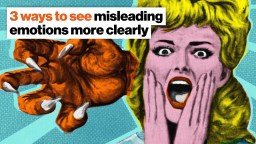Neuropsych
All Stories
Boy, girl: the pain is the same.
Beef, salt, and water is all the Canadian professor eats. Is that sustainable?
A new study takes a fresh look at the mechanics of forming habits.
What’s the role of evil in storytelling?
Thoughtful advice on how to manage a volatile market.
Need to reduce your stress? Try thinking of the face of your better half.
What strategies do you use to push through a tough challenge, be it a run on a treadmill or a stressful phone call with your boss? Perhaps you remind yourself […]
Almost 200 cognitive biases rule our everyday thinking. A new codex boils them down to 4.
The Canadian professor has an extensive collection posted on his site.
Sometimes doing nothing means everything.
A new study from Oregon State University makes it clear: it’s you.
You can use these to get ahead, no matter your age.
Legislators push to keep cursive in their schools’ curricula, but experts seem split as to whether it’s necessary.
For Damien Echols, tattoos are part of his existential armor.
▸
5 min
—
with
Even some teachers suffer from anxiety about math.
Research by neuroscientists at MIT’s Picower Institute for Learning and Memory helps explain how the brain regulates arousal.
Our attention is more than just a resource. It is an experience.
Is it “perverseness,” the “death drive,” or something else?
Some experts say there’s no such thing. I choose to believe there likely is.
How you talk to people with drug addiction might save their life.
▸
9 min
—
with
Arranged marriages and Western romantic practices have more in common than we might think.
New research on the public’s opinion about genetically modified foods illustrates an alarming cognitive bias.
There’s a difference between having a harmonious passion and an obsessive one.
The American Psychological Association recently released guidelines for treating boys and men. Men aren’t happy about it.
Digging deeper into the mystery of the brain, soul, and consciousness.
“The best is the child in a separate room, where it then remains alone,” a bestselling Nazi-era parenting book advised.
While the first child improves parents’ mental health, a second child does not.
People’s views can change. What do we do with that?





























